SKYLA Partners Gather in Białystok to Advance Skills for the Twin Transition
02/10/2025
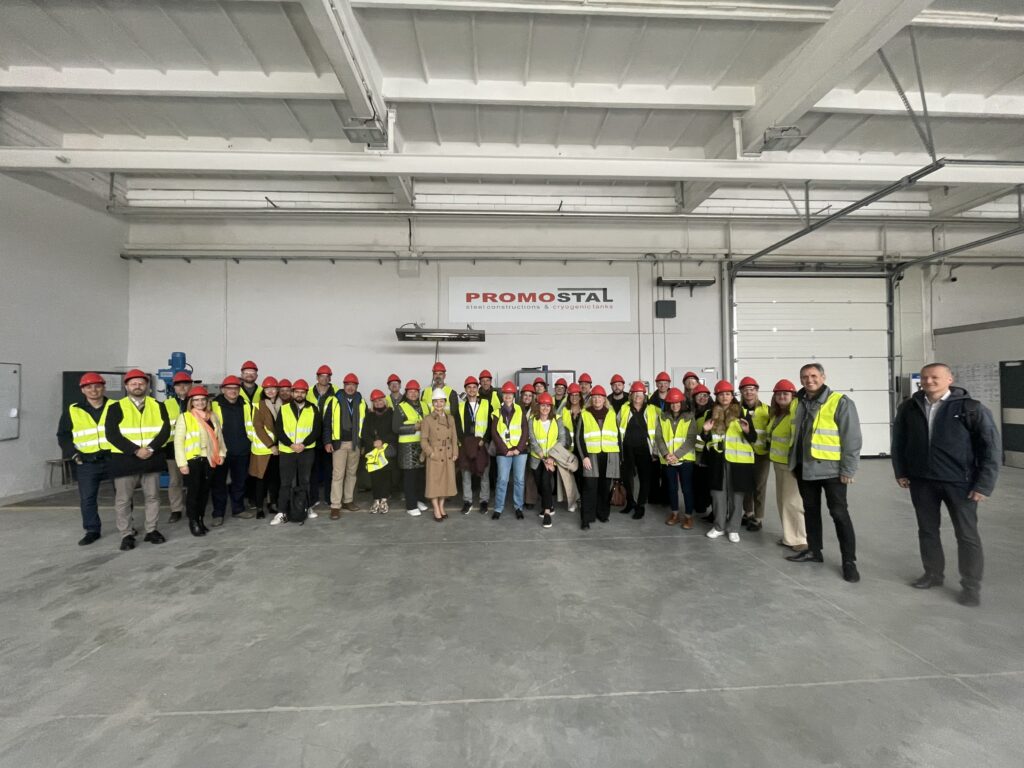
On 30 September and 1 October, SKYLA- Smart Specialisation Skills Ecosystems for the Twin Transition partners and stakeholders came together in Białystok, Podlaskie Voivodeship (Poland), for a two-day meeting combining study visits, policy workshops, and knowledge exchange. The event brought together regional representatives from Tuscany, Fingal County Council, Skåne, Sofia Municipality, Lithuania, and Attica Region, alongside discovery partners, including the Chamber of Economy of Montenegro and the Regional Development Agency of Lviv Region.
The programme began with study visits to key local initiatives. At the Białystok University of Technology’s Demolab, participants explored modern laboratories and teaching methods that prepare students for the challenges of Industry 4.0. This highlighted the role of universities in bridging advanced technologies with vocational training. The group also visited Promostal, a company collaborating with vocational schools through the “School with a Perspective – BS10” initiative. By engaging directly with students and co-designing curricula, Promostal showcased how businesses can align education with labour market needs.
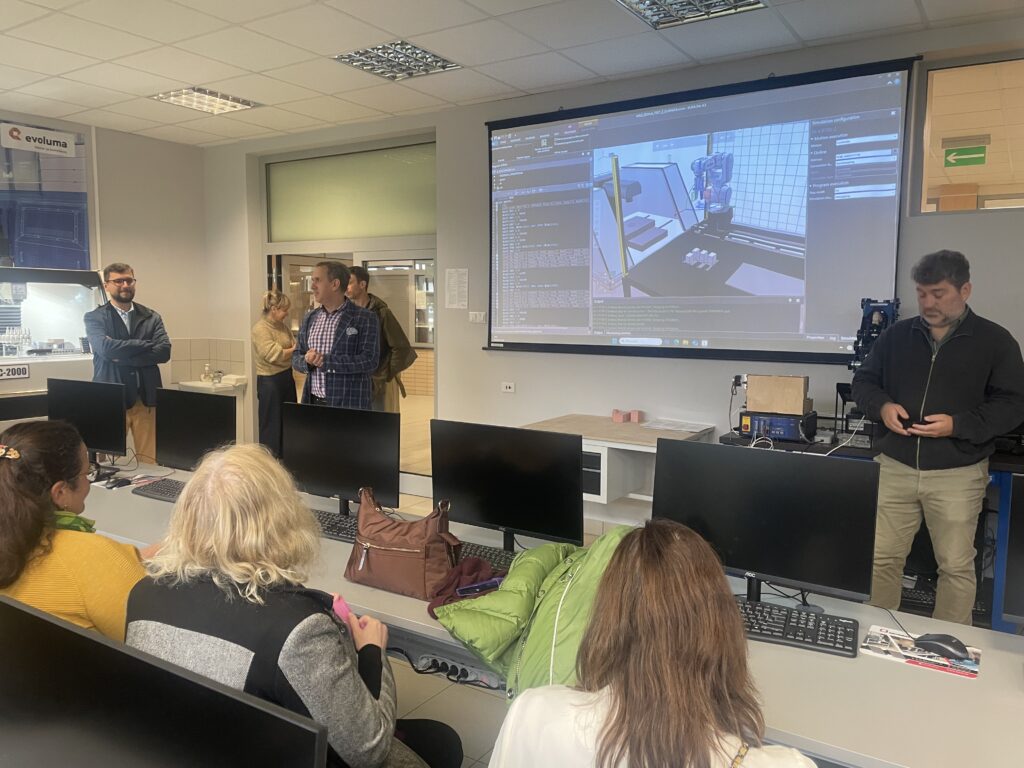
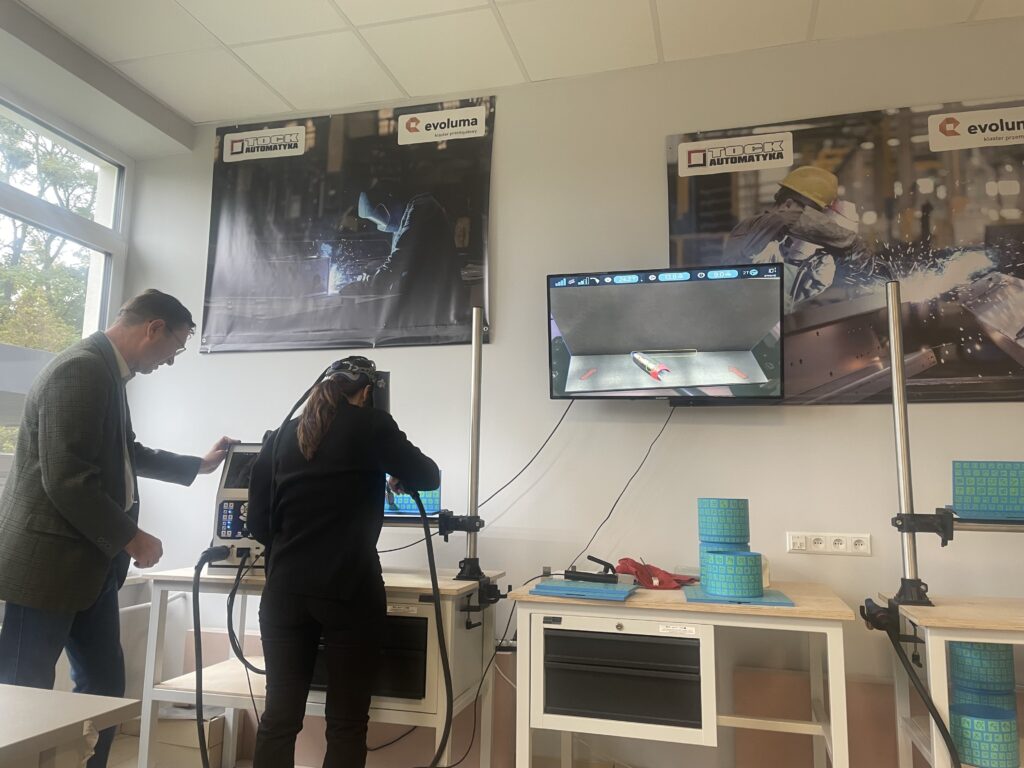
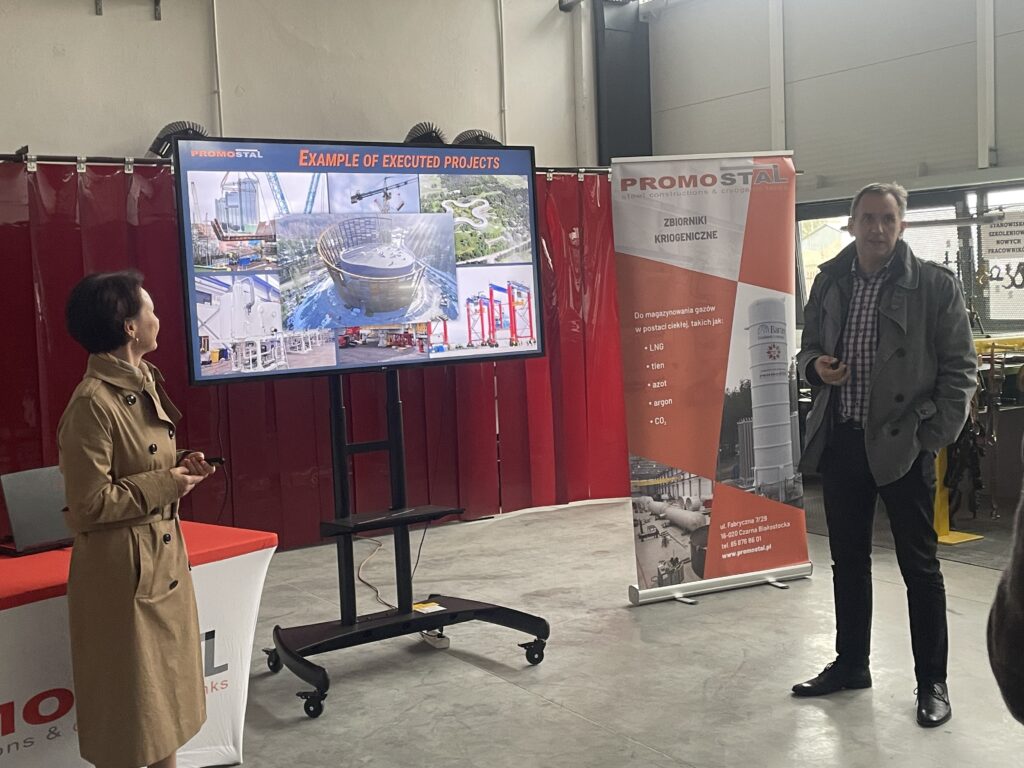
In the afternoon, Lorenzo Sabatini (ASEV – Tuscany Region) opened the workshop by underlining the importance of this final core-phase meeting. He noted that while regions are at different stages in advancing their policy improvements, all share a common goal: strengthening local policies on skills for the twin transition. He also stressed the importance of the project’s next phase, focused on monitoring and evaluation, engaging stakeholders, and defining indicators to assess impact.
Workshops facilitated by Pietro Collini (Resolvo) guided partners in developing approaches to measuring and monitoring policy improvements. Regional representatives worked together to define objectives, identify outputs, and establish indicators. The discussions reflected both the diversity of contexts across Tuscany, Lithuania, Attica, Skåne, Fingal, Montenegro, Podlaskie, Sofia, and Lviv, and common challenges such as stakeholder engagement, timing, and the inclusion of young people in vocational education and training (VET) policies.
The meeting also offered insights into regional good practices. Bogusław Plawgo (BFKK) presented the “Good Profession – Cool Life” campaign, which uses films, fairs, mentoring, and parental engagement to promote VET and counter stereotypes. The Regional Labour Office shared its innovative approach to adult career counselling, combining career planning and psychological support with digital tools such as VR. Finally, the Evoluma Industrial Cluster showcased “Smart Education for Industry 4.0,” highlighting how cluster cooperation can tackle workforce shortages in the metal and machinery sector while supporting VET reforms.
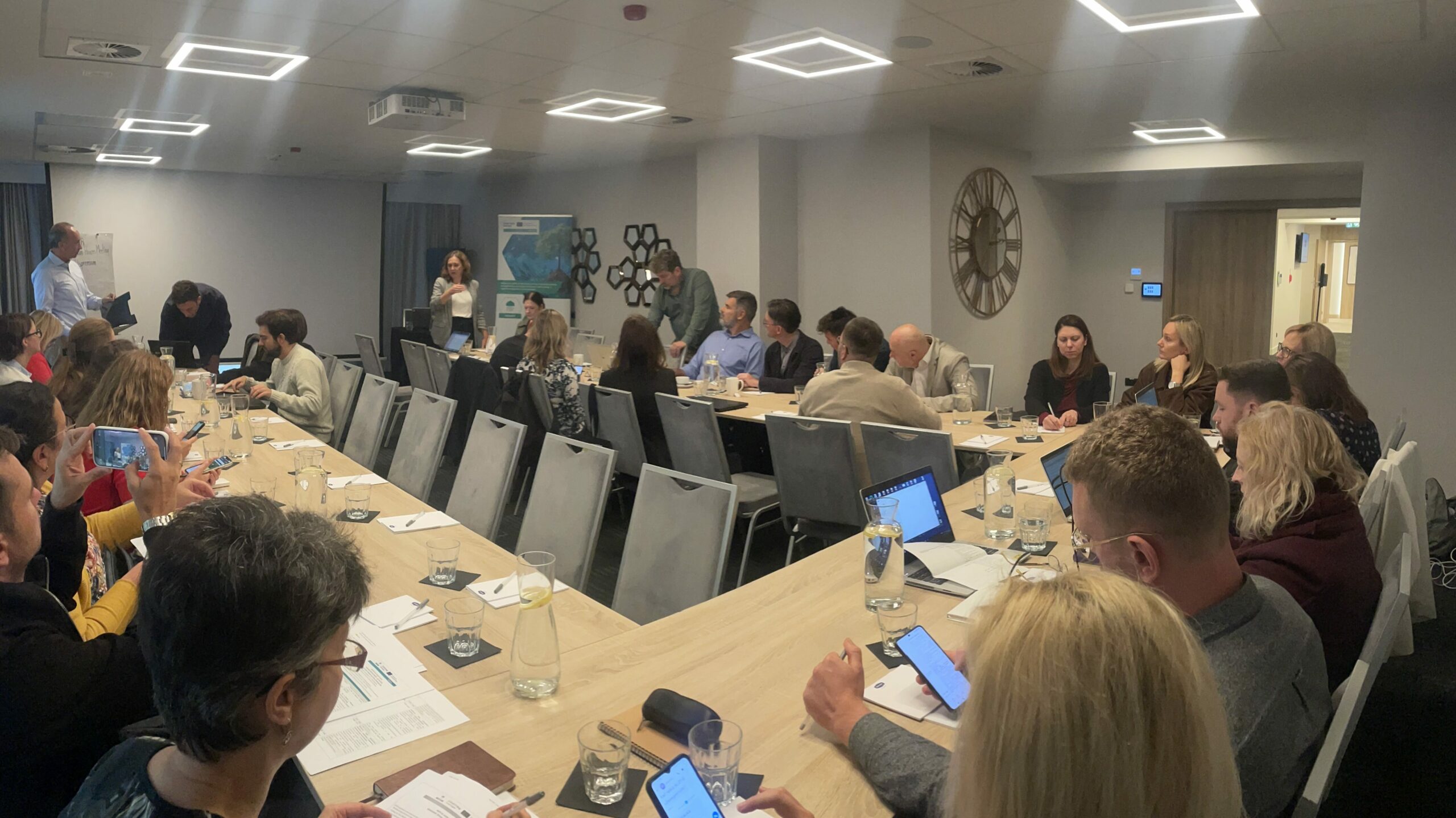
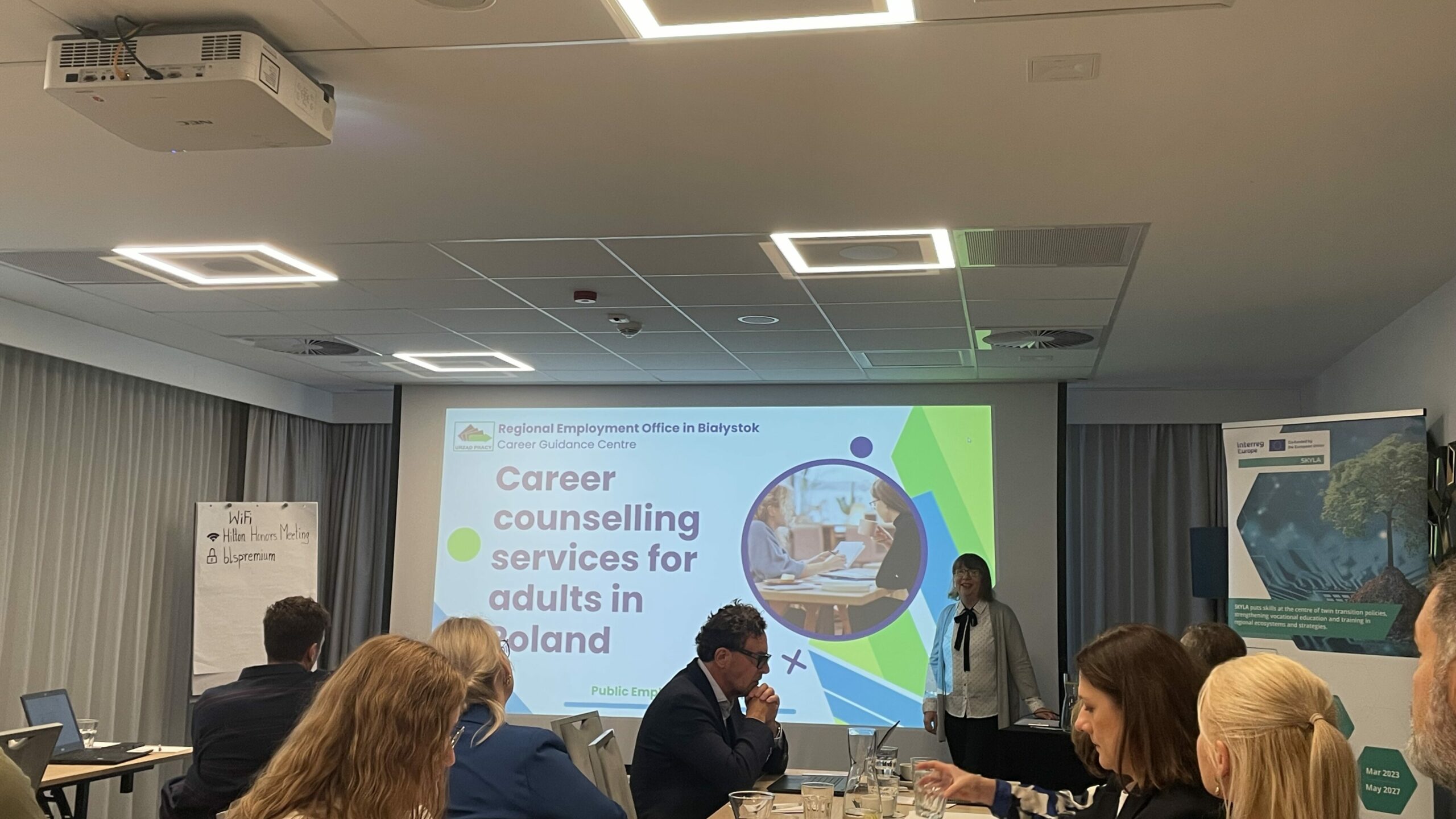
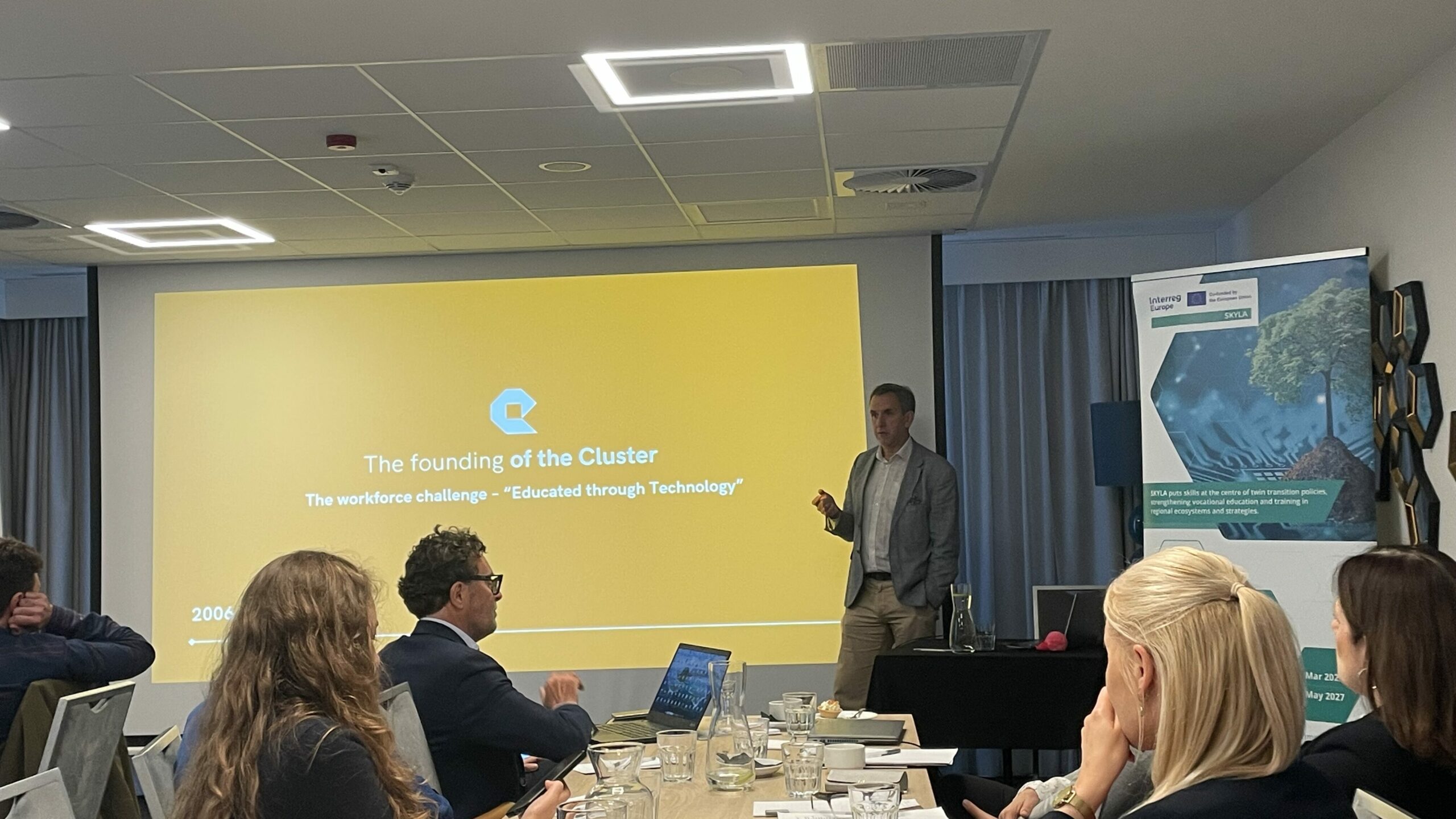
Throughout the two days, partners reflected on how to translate good practices into effective, long-lasting policies. The exchanges reinforced the importance of involving schools, employers, policymakers, and young people alike in shaping skills development strategies.
The Białystok meeting marked an important milestone as SKYLA moves from its core phase to the follow-up stage. With renewed focus on monitoring, evaluation, and stakeholder involvement, partners are well positioned to ensure that their policy improvements generate sustainable impact, equipping regions with the skills needed for the green and digital transitions.

